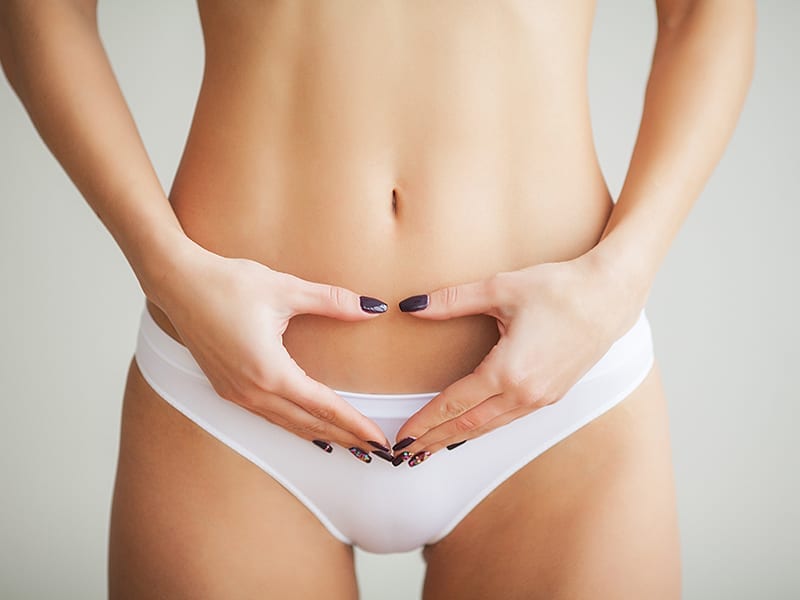Vaginal health is often a topic that is completely ignored. Although women tend to face a lot of problems in the vaginal area (which is completely normal considering how much happens down there), this is a topic that is often left unspoken and even considered taboo in some circles. Every woman needs to remember that a clean vagina is as important as cleaning any other part of one’s body.
Vaginal infection is very irritating and can at times cause serious medical issues if left untreated. The skin in a woman’s vaginal area is extremely sensitive and can easily end up feeling irritated, inflamed or itchy. However, with the right care and proper hygiene practices, most problems can be avoided. Despite the fact that the vagina is naturally designed to keep itself clean with the aid of secretions or discharge, it is imperative to follow right hygiene practices to keep infections at bay.
Generally, the health of the vagina can be maintained with healthy eating habits and following a good lifestyle routine. It is also a great idea to have a regular exercise schedule like walking, jogging or pelvic exercises to keep the vagina healthy.
9 Expert Tips For Genital Hygiene By Dr Anitha Rao
1. Use Clean Underwear

One of the most important rules to be followed for healthy vaginal hygiene is changing one’s underwear every day, at least twice. The vagina tends to leave discharges and vaginal juices in one’s underwear. If left uncleaned, this can lead to severe infections, redness, itching and so on. Cotton underwear is recommended as they are light and breezy and allow your vagina to breathe (not literally).
2. Wash Your Vagina
After sex, after using the bathroom or in fact, after any activity that involves the vagina, wash it. Regularly washing of the vaginal area with water ensures that fluids and particles that might cause an infection are immediately rinsed out. It’s best to avoid perfumed soaps, gels and washes as this can alter the healthy balance of bacteria and PH levels in the vagina and can cause irritation. Also, clean the vagina before the anus. This ensures that unwanted bacteria are not brought into contact with the vaginal area.
3. Don’t Douche
Douching is not recommended as a healthy form of cleansing. It is not a hygienic cleansing method and it is not recommended. If you want to douche during periods, do so, but avoid doing it repeatedly or frequently.
4. Handle With Care
The vagina is made up of extremely soft and sensitive skin so avoid rubbing it with harsh rough movements. This can cause cuts, bleeding and bruises that can eventually lead to an infection.
5. Strive For Sustainable & Safe Menstruation
During periods, change your napkins or tampons regularly, every 4 – 6 hours (depending on how heavy your flow is). Not changing them leads to skin rashes and bad odour, which gets even more uncomfortable when you are on your period.
6. Eat A Healthy & Balanced Diet
Your vagina reflects what you eat so make sure to eat healthily. Yoghurt (dahi), probiotics or kimchi can help keep the vaginal biome stable and fight any possible infections. Drink plenty of water, as this will do well to your entire body in general.
7. Clean Your Toys
Make sure to clean all your sex toys properly before they are used. Remaining residue on toys can cause itching, redness, rashes, irritation and infection when left uncleaned.
8. Never Self-Medicate
Not all rashes or irritation in the vaginal area are because of the same reasons. Make sure to consult a gynaecologist immediately and seek out the right medication. Wrong medication can make it more uncomfortable and painful.
9. Avoid Shaving
A shaved pubic area is not necessarily a clean one. Shaving is best avoided because of the sensitive skin present down there. Pubic hair, in fact, acts as a natural barrier against bacteria from outside and protects the vaginal region.
Vaginal health is as important as the health of any other part of a woman’s body. Although vaginal infections are embarrassing to talk about, it is important to remember that it requires equal attention. It is important to talk to one’s partners regarding one’s intimate hygiene. This will ensure that you don’t end up giving each other any infections and it will lead to healthier and safer sex life. Women in the age group of 25 to 64 must also undergo regular cervical screening to rule out any abnormal changes in the cervix. Never shy away from visiting your doctor for any necessary intervention and have a routine gynaecologist visit every 3-6 months.

